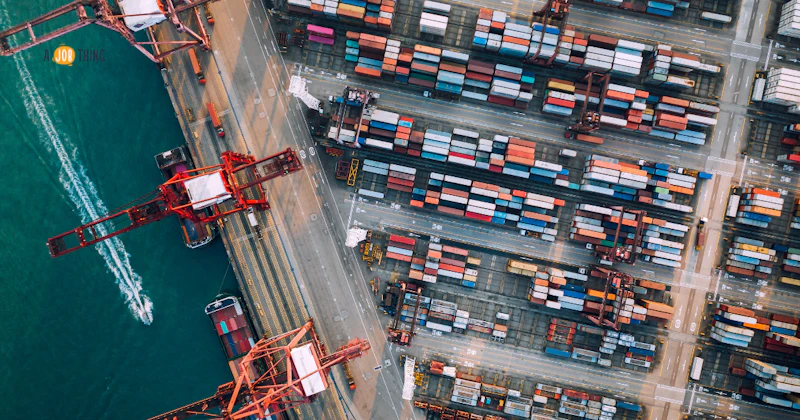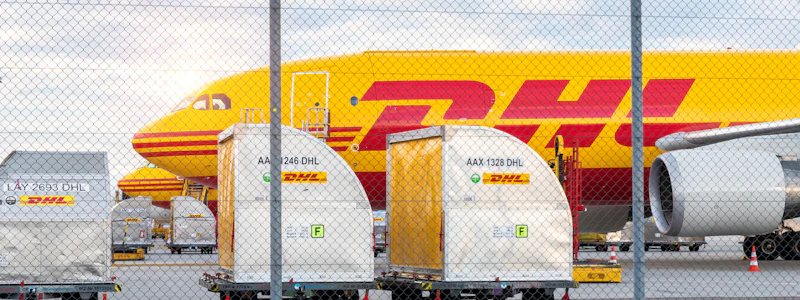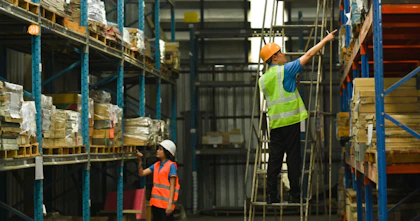Products
AI JOB AD
Create compelling job ads in seconds with AI-powered assistance.
AI JOB FOLDER
Automate your candidate screening and folder management.

CAREER PAGE
Build your personalized career page with strong company branding to attract candidates and manage your job vacancy.

AJOBTHING REVIEW
Explore what employers love about AJobThing recruitment platform for fast & successful hiring
AJOBTHING CARE
Get dedicated after-sales support, hiring guidance, and personalized assistance to ensure your recruitment success.
PARTNERSHIP
Collaborate with us to achieve mutual success and reach a wider audience.
Resources
Products
AI JOB AD
Create compelling job ads in seconds with AI-powered assistance.
AI JOB FOLDER
Automate your candidate screening and folder management.

CAREER PAGE
Build your personalized career page with strong company branding to attract candidates and manage your job vacancy.

AJOBTHING REVIEW
Explore what employers love about AJobThing recruitment platform for fast & successful hiring
AJOBTHING CARE
Get dedicated after-sales support, hiring guidance, and personalized assistance to ensure your recruitment success.
PARTNERSHIP
Collaborate with us to achieve mutual success and reach a wider audience.
- Select your industry

Logistics Industry: Navigating the Local Supply Chain in Malaysia
The logistics industry in Malaysia is crucial for the economy by ensuring the smooth movement of goods within the supply chain. In this guide, we provide insights to help navigate the complexities of the local supply chain landscape, shedding light on key aspects, challenges, and best practices.
The Logistics Landscape in Malaysia
In 2019, global economies faced challenges, particularly in the ASEAN region, due to trade tensions between the United States and China. However, Malaysia emerged as one of the countries benefiting from these supply chain logistics trends.
Many companies chose to shift their manufacturing operations from countries like China and Singapore to Malaysia because it offered more cost-effective options. They made this move to bring their supply chain and procurement teams closer to their production facilities.
Additionally, many large global logistics companies decided to centralize their support functions for procurement and supply chain in Malaysia. This strategic decision helped these logistics firms streamline their business processes, enhance efficiency, and reduce hiring costs.
Malaysia's logistics industry encompasses a wide range of activities in the movement, storage, and management of goods within the local supply chain. To effectively navigate the logistics landscape in Malaysia, it's essential to familiarize yourself with the following key elements:
1. Transport Infrastructure
Malaysia boasts a well-developed transport infrastructure that is the backbone of logistics operations. The country's extensive network of highways, railways, airports, and seaports enables efficient transportation and distribution of goods.

Port Klang, for instance, is one of the busiest ports in the region, acting as a vital gateway for international trade. The well-connected highways and railways facilitate seamless connectivity between different economic centres and regions within the country.
2. Free Trade Zones and Industrial Parks
Malaysia has strategically established free trade zones (FTZs) and industrial parks nationwide to attract businesses and stimulate economic growth. These zones offer enticing incentives, including tax exemptions, simplified customs procedures, and access to modern infrastructure.
For example, the Port of Tanjung Pelepas in the Iskandar Malaysia region serves as a thriving free trade zone and one of the largest container ports in the country. It provides businesses with a strategic location and logistical advantages for international trade.
3. Last-Mile Delivery and E-commerce
The rise of e-commerce has significantly impacted logistics operations in Malaysia. Efficient last-mile delivery has become crucial to meet the demands of online customers. Local logistics providers continuously adapt their operations to cater to the specific needs of e-commerce platforms.
For instance, companies like J&T Express have introduced innovative last-mile delivery solutions, including digital tracking systems and convenient pickup points, to provide seamless and timely delivery services for e-commerce orders.
Read more: Logistics in Malaysia: Market Overview and M&A Trends
Challenges and Best Practices for Navigating the Local Supply Chain
The logistics industry in Malaysia faces various challenges that can impact supply chain operations. By being aware of these challenges and implementing best practices, businesses can navigate the local supply chain more effectively. Consider the following:
1. Traffic Congestion
Traffic congestion, particularly in urban areas, challenges logistics operations in Malaysia. To mitigate the impact of congestion, businesses can plan efficient routes using GPS tracking systems, leverage technology for real-time traffic updates, and schedule deliveries during off-peak hours.
For example, logistics companies like GD Express have implemented advanced route optimization software to minimize the impact of traffic congestion and ensure timely deliveries.
2. Regulatory Compliance
Complying with local regulations and customs procedures is crucial for smooth logistics operations in Malaysia. Staying informed about regulatory changes, maintaining accurate documentation, and partnering with customs experts can help businesses ensure compliance and prevent delays.
For instance, logistics companies often collaborate with customs clearance agents with in-depth knowledge of the local regulations, ensuring smooth and efficient customs processes.
3. Infrastructure Development
Ongoing investments in infrastructure development are vital to support the growing logistics demands in Malaysia. Monitoring infrastructure expansion plans and collaborating with logistics service providers with a robust network can optimize operations and ensure efficient distribution.
For example, logistics companies like LBC Express have established strategic partnerships with local transportation providers to leverage their extensive network and infrastructure, enabling efficient distribution across Malaysia.
4. Talent and Skills Development
Developing a skilled logistics workforce is essential for sustainable growth. Businesses can invest in employee training programs, promote knowledge sharing among logistics professionals, and embrace digital tools and technologies to enhance workforce capabilities and drive operational efficiency.
For example, logistics companies like CJ Logistics Malaysia provide comprehensive training programs to equip employees with the necessary skills and knowledge to excel in various logistics functions.
5. Technology Adoption
Embracing technology solutions can enhance efficiency and visibility in the logistics industry. By adopting advanced systems such as warehouse management systems, transportation management systems, and track-and-trace technologies, businesses can gain better supply chain visibility, improve decision-making, and enhance collaboration.

For example, logistics companies like DHL Malaysia have implemented state-of-the-art tracking systems that enable customers to monitor the real-time status of their shipments, enhancing transparency and customer satisfaction.
Available job vacancies in transportation and logistics.
Strategic Approaches to Addressing Candidate Shortages in Today's Labor Market
Focusing on candidate strategy is crucial in today's labor market, especially when there's a shortage of candidates for strategic roles. With a limited talent pool, employers must entice candidates with attractive compensation packages and dynamic work environments.
Simultaneously, employers should explore providing training and development opportunities for their current employees. This helps them acquire strategic thinking skills and offers more chances for empowerment and practical experience.
The challenge of hiring candidates in the logistics industry has led many companies to consider flexible recruitment solutions or hiring contractors and temporary workers for specific projects. From the candidate's perspective, permanent positions are often preferred over temporary projects. If employers were to extend the option of a permanent role after project completion, candidates would be more likely to accept the job offer.
Top Logistics Companies in Malaysia
These companies play a crucial role in Malaysia's logistics industry, offering diverse services to meet the needs of businesses across various sectors.
DHL Malaysia
DHL is a global leader in logistics and express delivery services. In Malaysia, DHL offers a wide range of logistics solutions, including international shipping, freight forwarding, and supply chain management. With a strong presence and a commitment to excellence, DHL is a top choice for businesses seeking reliable logistics support in Malaysia.
UPS Malaysia
UPS is known for its efficient package delivery and supply chain management services. In Malaysia, UPS provides a comprehensive suite of logistics solutions, including express parcel delivery, freight transportation, and e-commerce fulfillment. Their global network ensures seamless connectivity for businesses in Malaysia and beyond.
FedEx Malaysia
FedEx is a renowned logistics company that offers reliable courier and shipping services in Malaysia. With a focus on speed and accuracy, FedEx helps businesses manage their supply chains effectively. Their international reach and advanced tracking systems make them a trusted partner for logistics needs.
Tasco Berhad
Tasco Berhad is a prominent Malaysian logistics company specializing in transportation and warehousing services. They offer end-to-end logistics solutions, including road transportation, distribution, and customized supply chain management, catering to diverse industries.
Tiong Nam Logistics Holdings Berhad
Tiong Nam Logistics is a leading logistics and transportation provider in Malaysia. They offer a wide array of services, including container haulage, warehousing, and cross-border logistics. Their extensive fleet and infrastructure make them a reliable choice for businesses seeking seamless logistics support.
Ekspres Perdana
Ekspres Perdana is a Malaysian logistics company that specializes in courier and express delivery services. They focus on delivering packages quickly and efficiently, catering to both domestic and international markets.
Bintulu Port Holdings Berhad
Bintulu Port Holdings operates one of Malaysia's key ports, facilitating the import and export of goods. Their logistics services include port operations, container handling, and warehousing, playing a vital role in Malaysia's trade industry.
MTT Shipping
MTT Shipping is a logistics company with expertise in shipping and freight forwarding. They provide comprehensive logistics solutions, including ocean freight, air freight, and customs clearance, ensuring smooth cargo movement for their clients.
Nippon Express Malaysia
Nippon Express is a global logistics company with a strong presence in Malaysia. They offer a wide range of logistics services, such as international freight forwarding, warehousing, and supply chain management, helping businesses optimize their operations.
Century Logistics Holdings Berhad
Century Logistics Holdings is a Malaysian logistics provider offering integrated logistics solutions. Their services encompass warehousing, transportation, and value-added logistics services, making them a one-stop solution for businesses looking to streamline their supply chains.
Frequently Asked Questions(FAQs)
FAQ 1: What are the key factors contributing to Malaysia's logistics hub success?
Answer: Several factors contribute to Malaysia's success as a logistics hub. These include its strategic location as a gateway to Asia, well-developed transport infrastructure, extensive network of free trade zones and industrial parks, government support for the logistics industry, and the country's commitment to fostering a business-friendly environment.
FAQ 2: How can businesses in Malaysia overcome the challenges of traffic congestion in urban areas?
Answer: To overcome traffic congestion challenges, businesses can adopt various strategies. These include planning efficient delivery routes, utilizing GPS tracking systems for real-time traffic updates, leveraging data analytics to optimize routes, exploring alternative transportation modes, and scheduling deliveries during off-peak hours to reduce congestion impact.
FAQ 3: What are the benefits of embracing technology solutions in the logistics industry in Malaysia?
Answer: Embracing technology solutions in the logistics industry offers numerous benefits. It improves supply chain visibility, enhances operational efficiency, streamlines processes, enables real-time tracking of shipments, facilitates better communication and collaboration, enhances customer experience, and enables data-driven decision-making. Technology adoption helps businesses stay competitive in the evolving logistics landscape of Malaysia.
FAQ 4: How does Malaysia's logistics industry contribute to the e-commerce sector's growth?
Answer: The logistics industry plays a critical role in supporting the growth of the e-commerce sector in Malaysia. It ensures efficient last-mile delivery, seamless order fulfilment, and effective management of returns. Logistics companies tailor their services to meet the specific needs of e-commerce platforms, providing timely and reliable delivery services, contributing to customer satisfaction, and fostering the expansion of online businesses.
FAQ 5: What steps can businesses take to ensure regulatory compliance in logistics operations in Malaysia?
Answer: To ensure regulatory compliance, businesses in Malaysia can follow several steps. These include staying informed about local regulations and customs procedures, maintaining accurate documentation, partnering with customs clearance agents who possess expertise in local regulations, conducting regular audits to identify and rectify compliance gaps, and establishing strong relationships with regulatory authorities to stay updated on any changes in requirements.
Keynote
Navigating the logistics industry in Malaysia requires a deep understanding of the local supply chain landscape, transport infrastructure, e-commerce dynamics, regulatory compliance, and talent development. By recognizing the challenges and implementing best practices specific to Malaysia, businesses can optimize their logistics operations, meet customer expectations, and contribute to the growth of the nation's economy.
Continuous education, staying updated with industry trends, and fostering collaborations with trusted logistics partners are crucial for success in Malaysia's dynamic logistics landscape. With its strategic location, robust infrastructure, and thriving e-commerce sector, the logistics industry in Malaysia presents exciting opportunities for businesses to thrive in an ever-evolving supply chain ecosystem.

Post Job Ads with AJobThing
Find best talents with 5+ million database on Maukerja, Ricebowl, Epicareer, LinkedIn, & Google!
Post Job Now
Recent Related Articles
- The Technician Industry: Powering Innovation and Precision
- Transforming Talent: HRD CORP's Signature Programs for Next-Level Success
- 10 ChatGPT Prompts for Recruiters
- What Can AI Do in Recruitment? A Guide for Employers
- Top 11 Job Skills Employers Look for in Candidates
Please be advised that A Job Thing provides information to assist our site users. However, we must emphasize that we are neither acting as your recruiter nor your legal advisor. We cannot be held liable for any inaccuracies in your job descriptions, and our information does not guarantee job performance.


